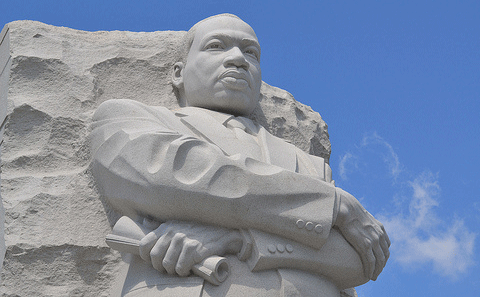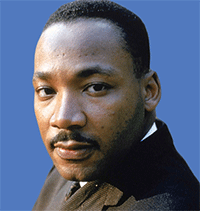


Located southwest of the National Mall in Washington D.C., the Martin Luther King, Jr. Memorial is a fairly new statue honoring the civil rights leader. It officially opened in 2011, capping 20 years of planning and construction. The Memorial's walls are inscribed with some of King's most famous quotations. It is the newest on the Mall, and the first to honor a non-president.
It's also the first to memorize and celebrate a black man on the National Mall. Dr King's statue is carved into what is known as the Stone of Hope, which emerges from two large boulders. The Memorial's vision statement reads in part: "Upon reflection, we are reminded that Dr. King's lifelong dedication to the idea of achieving human dignity through global relationships of well being has served to instill a broader and deeper sense of duty within each of us — a duty to be both responsible citizens and conscientious stewards of freedom and democracy." Dr. King's legacy has endured on a huge scale, and so has his "I Have a Dream" speech.
Our Inscription Wall Best Quote
"If we are to have peace on earth, our loyalties must become ecumenical rather than sectional. Our loyalties must transcend our race, our tribe, our class, and our nation; and this means we must develop a world perspective." Martin Luther King

Born on January 15, 1929 in Atlanta, Georgia, Martin Luther King Jr. was a clergyman and a civil rights leader who preached civil disobedience using non-violence. He was born to parents, Reverend Martin Luther King, Sr. and Alberta Williams King. The black civil rights campaigner is best remembered for his memorable 1963 "I Have a Dream" speech.
His activism against white supremacy and discrimination of people of color, especially black people agitated many in the corridors of power and authorities, including the FBI and the CIA who began to investigate him for possible communist links. Dr. King was assassinated on March 29, 1968, in Memphis, Tennessee. His death sparked outrage and violent protests across the country. But several decades latter, his legacy endures, inspiring many people across the race divide and the world.